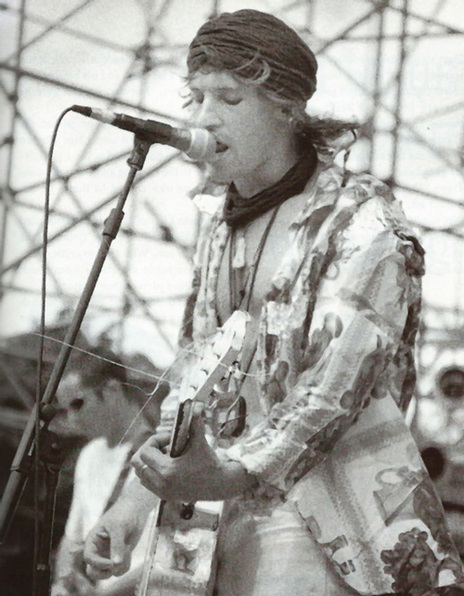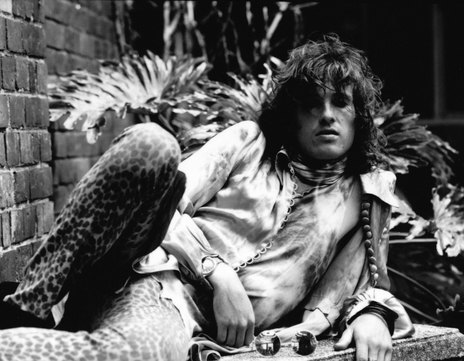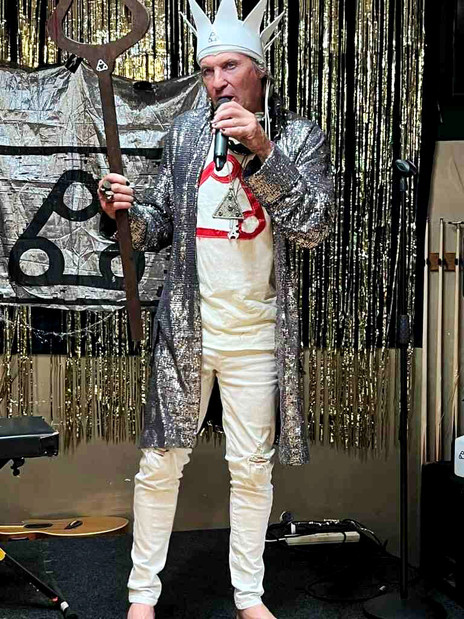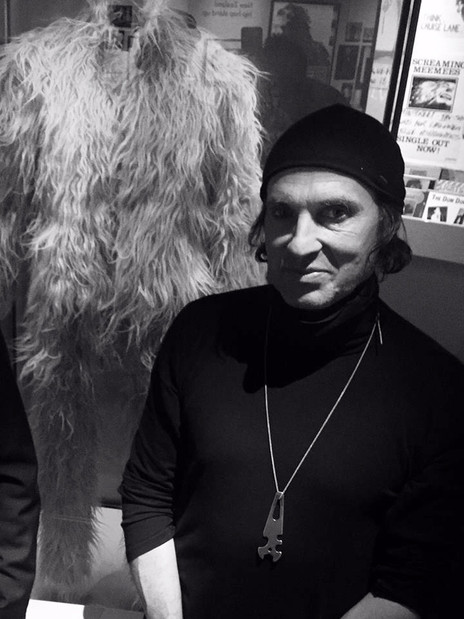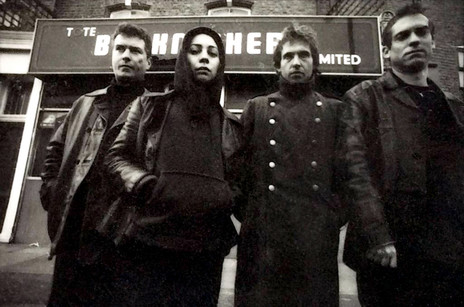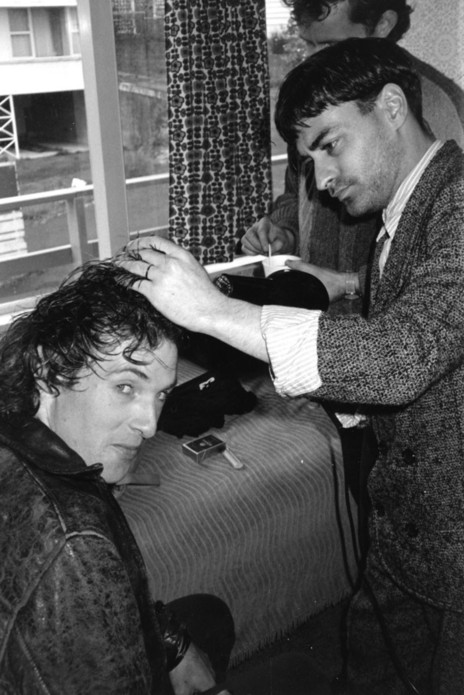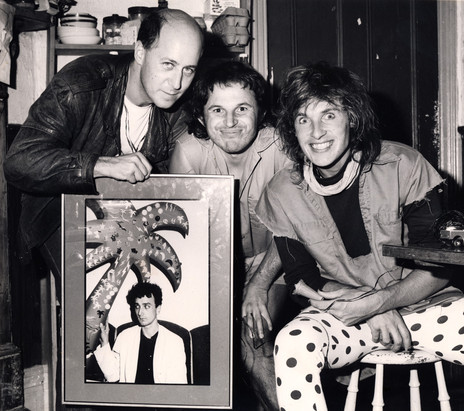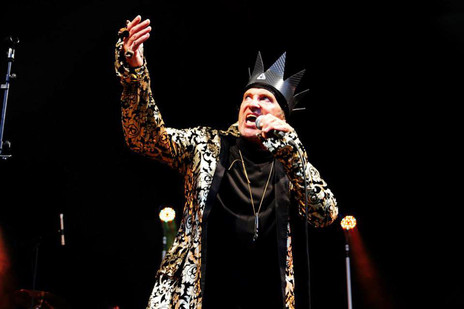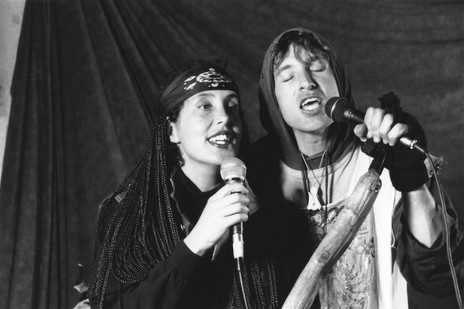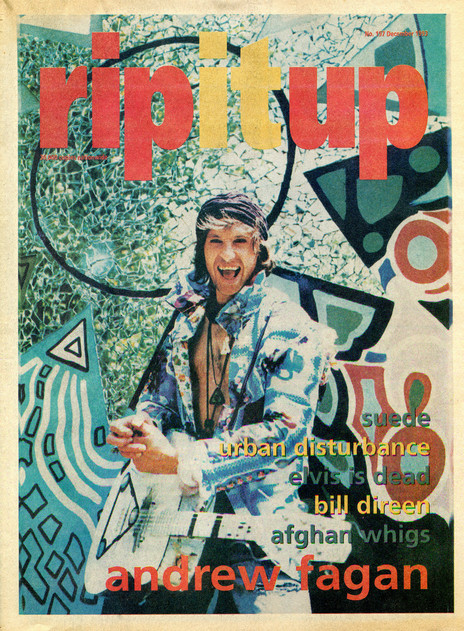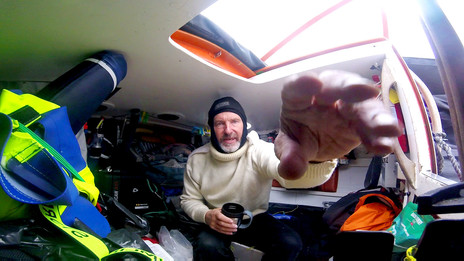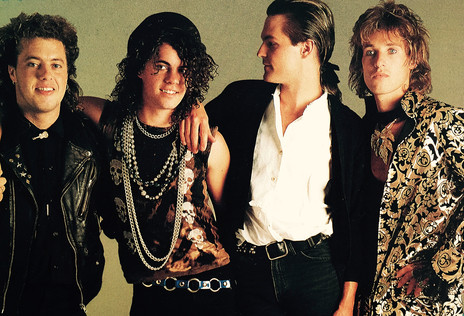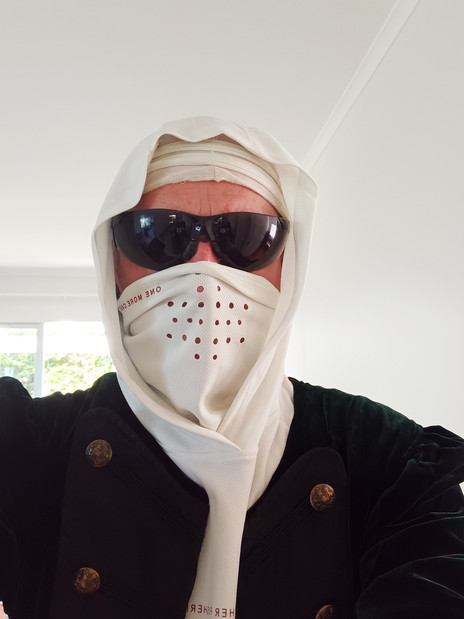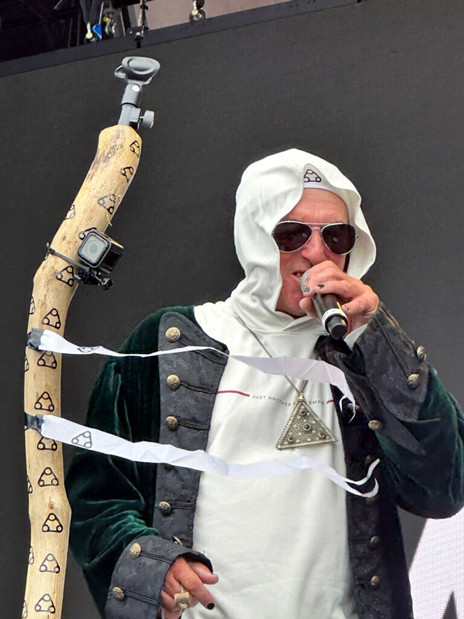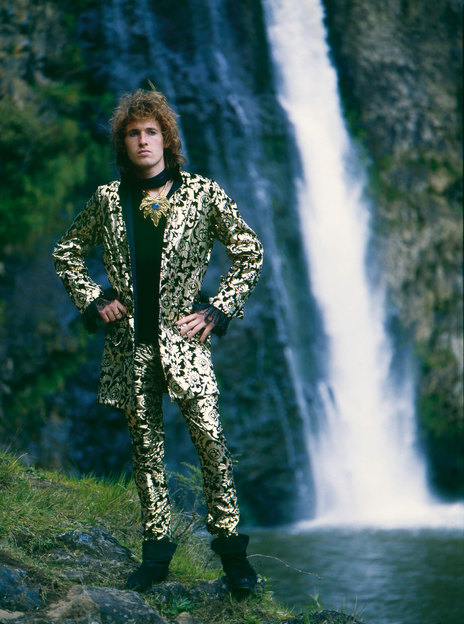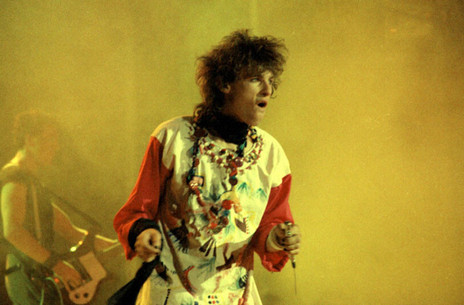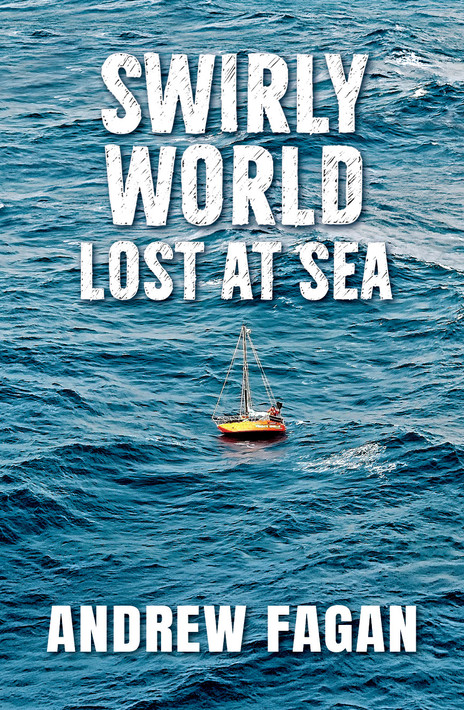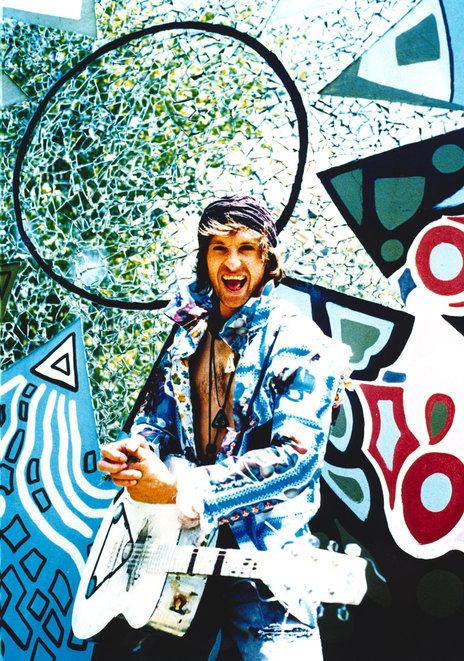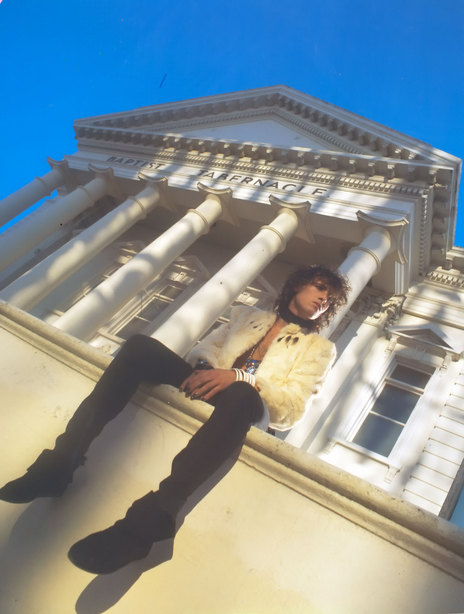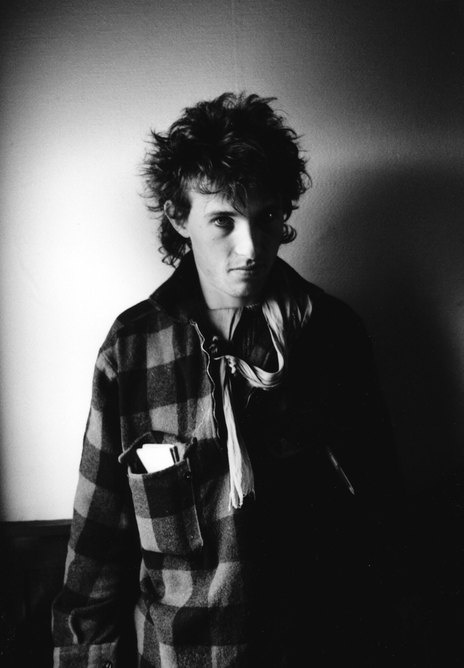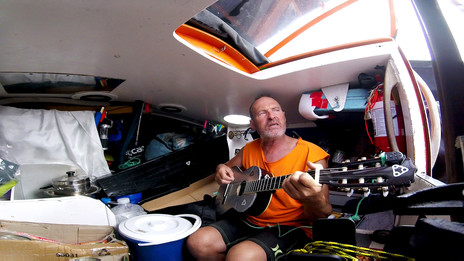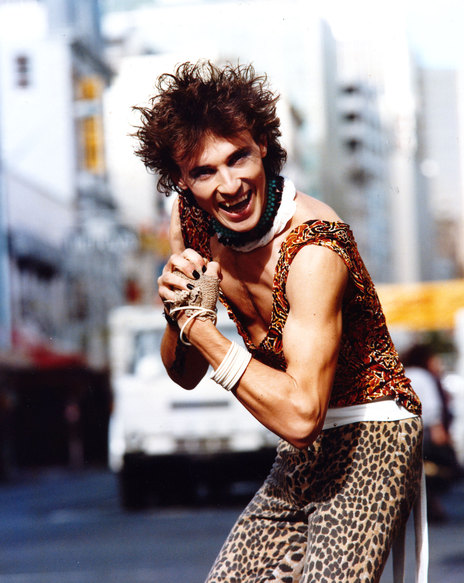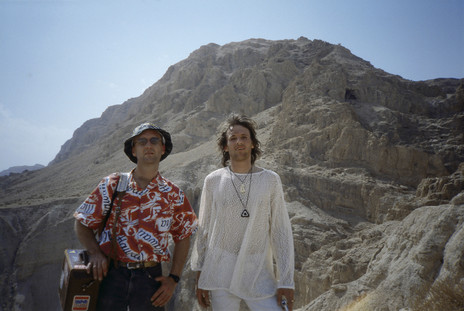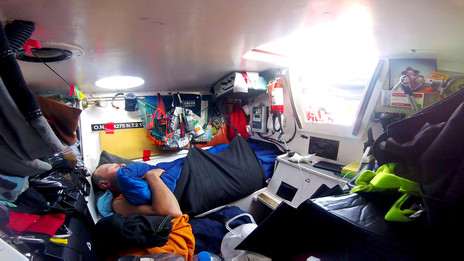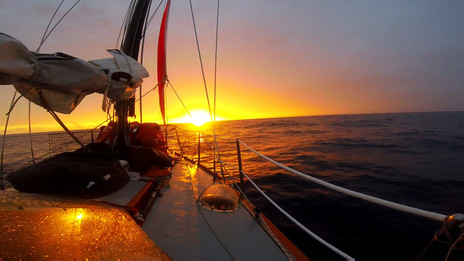“There’s never gonna be someone more gorgeous than me …” – ‘Gorgeous’, from the album Act Normal, by Andrew Fagan and the People
By his Bandcamp description, he’s a “poet singer songwriter sailor writer show-off”. He’s the guy who reckons he should have got the rap Dave Dobbyn copped for the 1984 Queen Street Riot. He missed the brewing brouhaha that started while he was on stage, that darkening summer evening in 1984, because he was on his way home to the wee boat he lived on in Cox’s Bay. (Its name? The Prince of Innocence.) He and fellow Mockers songwriter Gary Curtis mined the night for the classic single ‘One Black Friday’...
“Caught in a crossfire and there’s nowhere to run to / Pursue the frontline just for something amusing to do / And he doesn’t know his name / He plays the game, and he’s a loser / One black Friday” – (from the album Culprit and the King, by The Mockers)
At the height of their fame The Mockers toured the heck out of New Zealand, including high schools for lunchtime concerts, and the underage, “Blue Light” discos hosted by the NZ Police.
“The Mockers were grateful we were playing to so many young impressionable people on such a regular basis,” Fagan recalls. “We’d spent so much time by ourselves in the practice room doing what you have to do to put songs together, and actually having captive audiences at high school lunchtime concerts, and evening socials and balls, was gratifying fun.
“I remember Blue Light discos fondly, especially one in Taupō. They were so well-orchestrated, and seemed positive for all involved. The police presence was almost invisible when it came to performing, and the age group seemed very young, but in a safe place. I curtailed my propensity for lewd humour and sometimes unseemly performance activity, given the circumstances, and the band always delivered a good fun time. Bring back Blue Light discos!”
Fagan’s own introduction to music happened in the front room of the house he grew up in in Island Bay, Wellington. This is where – in the late 1960s and early 1970s – he found himself “locking onto music as an emotionally uplifting thing”.
“We had a small – by modern standards – vinyl record player and sound system,” he remembers. “My father would play songs he connected with. The Irish Rovers’ ‘Black Velvet Band’ comes to mind. Bread – ‘Aubrey’, ‘It Don’t Matter To Me’, ‘Diary’. These were 45s and 78s played. Old 50s big band stuff that didn’t appeal, but Elvis was in there somewhere.”
His first band, the Ambitious Vegetables, was formed at Rongotai College
He attended Rongotai College, Wellington, where his first band – The Ambitious Vegetables – formed. In a sign of things to come for their singer, the young punks would play their first performance at a lunchtime gig. This included ‘Mackay Wanks’ – a song about the school’s notorious headmaster, Noel Mackay (not to be confused with the entertainer Noel McKay). The song got them called to the subject’s office. But it didn’t stop the headmaster writing on Fagan’s end-of-year report that he “was using his time and talents well”.
The college years also marked the emergence of a personal ideology marked by the “Gombolic” symbolism that has been incorporated into all things Fagan ever since.
Referencing a densely collaged image to elucidate his thoughts on the topic, along with a number of detailed close-ups, Fagan explains:
“The Gombolic represents a new way of thinking based on old ways of thinking that have fallen by the wayside. Anthropologically these need to be regenerated. But the problem is, introducing a new way of thinking to our aberrant species will meet with firm resistance from the status quo. The Gombolic will be dismissed as a cult, and all relevance of thought negated. At the moment it can be seen as a cult of one, as I am the only member, but that does not dilute the messages contained within. The accumulated knowledge it offers doesn’t need to be distributed yet. Hopefully, that time will come, but patience is a cliché virtue. It’s a portal of something I feel is special, and important, and bigger than myself, and something I have lived with for the last 50 years.”
When was this information was imparted to him?
“Due to one of my nostrils being hideously distorted, and a lost night alone on the Wellington coast at a young age, there has been speculation that I was interfered with by uninvited extraterrestrial beings, but until I undergo some kind of convincing hypnotherapy session, I don’t want to know.”
And, yet, there’s an unmistakable similarity between Fagan’s Gombolic and the 30-foot tall, flying triangle UFO that prompted aviation safety concerns when it was apparently observed popping out of the sea and racing into the skies above Frederick County, Maryland, last year.
“I sincerely hope Planet Earth is being visited by an extraterrestrial species that is benign,” Fagan says
“I sincerely hope Planet Earth is being visited by an extraterrestrial species that is benign,” Fagan says. “If it isn’t, we – as a species – could be in the shit. Sadly, the evidence is still inconclusive on most levels. Unusual lights and moving unidentified things in the sky, and US military testimonials, and my distorted nostril and suppressed memories don’t really cut it at an evidence-based level.”
In 1994, Fagan released a beautiful solo album called Blisters. Its most enduring single was ‘Jerusalem’, for which Shona Laing and Debbie Harwood contributed backing vocals, and Fagan’s wife – broadcaster and writer Karyn Hay – directed the video. The Sony-funded clip saw him performing amid a desert sea of Gombolic flags, on the titular land, and lyrical locales.
“Do we wait at the Golden Gate for the garish one? I hope it’s not late” – ‘Jerusalem’, from the album Blisters
Fagan recalls their visit to the West Bank and the Garden of Gethsemane, and the blocked-up, eastern “Golden Gate”.
“The messianic prophecies say the Christ second coming will involve him in garish clothes appearing at the Golden Gate. I appeared there in garish garb with my guitar in 1993. Apart from smashing down the old blocked-up gate, I sort of fulfilled a prophecy deliberately. Definitely an authentic contestant in the Messiah World Championships.”
“I’m your messiah / I take the species higher / I’m your messiah / Oh, don’t you call me the liar …” – ‘Messiah’, from Admiral of the Narrow Seas, by Fagan and the People
While living in the UK, Fagan’s next project, the band Lig (1995-2001), attracted the attention of a genuine messiah (of the airwaves), when the white label 12” of their song ‘Empty’ was championed by the BBC’s John Peel.
“That got us a booking agent and manager, and things were going well for a few years,” Fagan recalls. “The video for ‘Empty’ got thrashed on MTV Europe, and we sold 55 albums in Greece without ever playing there! Unfortunately, no copy of it can be found, and it’s the only NZ On Air vid that no longer exists. It was never played in New Zealand and the album, Bacterial Activity, was never released in New Zealand.
“Blur’s record company [Food Records] came to a few gigs, and a year later Blur put out ‘Song 2’, which I was repetitively told was a rip-off of ‘Empty’. It certainly has a similar attitude and vibe, but the chords and lyrics are different.”
Adjacent to his personal music career, by the late 1990s Fagan had become father to two sons, while living on a houseboat moving around the London canals. Since 2001, he has published three volumes of memoir detailing life on his 5.2 metre sailboat, Swirly World in Perpetuity, gaining him an entirely different audience of seemingly every keen, true-life adventure reader in the country.
His three memoirs have brought him an audience of keen readers of adventure books
In earlier days, there were also four volumes of poetry; and in 2009 a children’s picture book (On Plastic Bag Patrol – Over the Curve of the Earth, illustrated by Jeff Burnett) was released. He has been the subject of an Indonesia episode of the television show Intrepid Journeys; spent five years as a radio programmer, championing local music for Kiwi FM; and co-hosted a talkback show (working with Hay) on Radio LIVE.
Since 2002 he has been working with Fagan and the People (variously named Andrew Fagan and the People). They have released the EP Ancestor (2014), and two albums – Act Normal (2020), and Admiral on the Narrow Seas (2021). Loud Ghost’s Darryn Harkness is one of “The People”, and Fagan appeared on that band’s ‘You Will Be Haunted’ single last year.
In 2018, in tandem with a tour with English performance people’s poet John Cooper Clarke, he released a limited edition “poetry and soundtrack” CD album It Was Always Going to Be Like This. He tells me about the difference between a good poem and a good song.
“My songs generally have melodies (tunes) so grafting in the words (lyrics) to suit the melody is the hardest discipline,” he says. “Poems, for me, are often about chasing words out of self-conscious corners, and herding them into some kind of form that I personally find subjectively appropriate, without the constricting parameters of music. Both are equally compelling mediums of self-expression.”
Fagan’s latest book – Swirly World Lost at Sea (for which – not helped by its telling title – he is talking a losing battle in the media with regard to keeping any spoilers under wraps) recently won the NZ Mountain Book Competition’s Mountain and Adventure Book Narrative Award. He’s arguably as famous a sailor as he is a singer these days.
“Alone … a long way from anything you called home …,” he muses to me by email, “and, more importantly, often a longer way back to home, depending on which way the wind is blowing, it’s another elevated level of emotional headspace … coping with self-imposed aloneness. A true measure of emotional maturity and self-control. The true measure of a person, alone.
“Solo at sea offshore, the brutal realism of self-reliance and self-determination is all consuming. Survival becomes the primary instinct, and that is a great feeling.
“It is primal and immediate. You live as a being completely detached from any society and normal patterns of behaviour. You either enjoy it or you don’t. I enjoy it and feel emotionally complete at a primal level out there.
“On stage speaking words from my mind that I’ve shaped into ‘poems’ or grafted into ‘songs’, combined with showing off, is self-indulgent simple fun. I feel emotionally complete at a primal level. Same, but not the same. It is an all-consuming application at an emotional and physical level.”
The one-time chart dominator has singled out Olivia Rodrigo as a fav from today’s hitmakers – ‘Driver’s License’ in particular – and chose Voom’s ‘Beautiful Day’ for best New Zealand song on RNZ in New Zealand Music Month, 2025. While confessing to being too internalised by a preoccupation with his own, private creations, to keep up steadily with contemporary music, he also rates Fazerdaze’s ‘Cherry Pie’ as a “pick of the bunch at the moment”.
Fagan’s Passage of Time tour, in November 2025, sees the band play small venues all over the country. The singer is particularly keen to air a new work that’s been on his mind for a while. In Swirly World Lost at Sea, he describes writing – while living and working on a 23.4 metre tug off the coast of Samoa – ‘Passage Of Time’.
“It is a one-off single at the moment,” he said in May 2025. “It takes me years to carefully put together what I subjectively think are good, well-recorded songs. A bit like Voom, regarding the time taken to put their latest album together. But, yeah, eventually there will be another album. I look at albums as a simple body of work. No expectations of popularity or recognition or financial remuneration anymore. Just happy to leave a body of work I’m proud of.”
Fagan sees his albums as a simple body of work, with no expectations
For the time being, he’s keeping on with the hard and dirty work of being a tugboat sailor.
“It’s daylight now, and I’m sitting on this boat,” he wrote in an email, including a photo of the tug Rua, wrapping up musical conversation, following some wee hours musings. “It’s the smallest tug in town. I drive it … currently on the Whau river at Te Atatū. The concrete feet of Transpower power pylons in the mud and mangroves are being replaced and I drive stuff across the river to the site.”
He sends more photos of his working day: all mud, sea, metal, high-vis waistcoats and hard hats. “Industrial boating,” he writes, “everything is rusty and has the potential to kill you.”
A couple of months later, a message arrives from a tug 400 nautical miles northeast of Whangārei. A 24-track compilation album – Andrew Fagan: Passage of Time 1991-2025 – is in the works. The views remain the same … hard metal, sailors, and the wild blue sea. A job that’s seen him moving “at the sprightly speed of 3 knots” has afforded him “plenty of time to work on the content of my solo show”.
--
